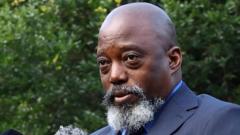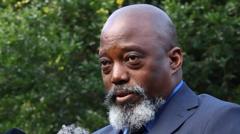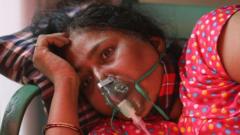RFK Jr's decision to halt $500 million in funding for mRNA vaccine projects has ignited debate over the technology's efficacy and future, with experts warning of a potential setback in vaccine development amid ongoing health challenges.
The Stakes of RFK Jr's Budget Cuts to mRNA Vaccine Research

The Stakes of RFK Jr's Budget Cuts to mRNA Vaccine Research
Major changes in U.S. funding for mRNA vaccine research raise concerns among scientists and public health experts.
In a surprising twist, RFK Jr., the U.S. Health Secretary and renowned vaccine sceptic, has decided to cut $500 million in funding for 22 mRNA vaccine projects aimed at tackling illnesses such as COVID-19 and flu. This decision raises questions about whether Kennedy is grounded in valid concerns about the safety and efficacy of mRNA vaccines, or if he is making a significant misstep.
Prof Adam Finn, a vaccine researcher at the University of Bristol, suggests it may be a mix of both views. He expresses frustration at Kennedy's dismissal of mRNA technologies, stating it could lead to a catastrophic error. Kennedy's justification for his decision stems from his evaluation of available data, which, he claims, indicates mRNA vaccines fall short in protecting against respiratory infections.
Kennedy’s shift toward funding "safer, broader vaccine platforms" has sparked discussion about the various types of vaccines available. These include inactivated vaccines, attenuated vaccines, and conjugate vaccines, all of which have their unique mechanisms for training the immune system.
Opinions differ on the mRNA vaccines’ safety and overall effectiveness. Proponents like Prof Andrew Pollard from the Oxford Vaccine Group reaffirm that mRNA vaccines have shown significant effectiveness in saving lives during the COVID-19 pandemic, boasting data that suggests they kept millions out of hospitals. While acknowledging some rare side effects, Pollard underscores the substantial benefits derived from this innovative technology.
Despite the advantages of mRNA vaccines, concerns linger regarding their protective capabilities against rapidly mutating viruses. Some experts argue that traditional vaccine methods may offer broader protection, but Pollard emphasizes mRNA technology's superior ability to quickly respond to outbreaks compared to older methods, which can be slow to adapt.
The implications of RFK Jr.'s budget cuts are extensive. The halt in mRNA research may hinder critical preparedness for future pandemics, particularly where rapid vaccine deployment is crucial. With projects geared toward combatting emerging threats like H5N1 bird flu being abandoned, specialists fear this may be a detrimental decision.
Consequently, this funding decision could ripple across the global medical landscape, impacting public trust in vaccines and the future of medical research in the U.S., an influential leader in health innovation. Many experts caution that rejecting mRNA technology may put public health at risk, stifling advances in immunization strategies for a variety of diseases, including cancer and rare genetic disorders.
Thus, the discourse generated by Kennedy's recent action is a pivotal moment for public health and medical research, raising essential questions about the direction of vaccine technology in a world still grappling with pandemic threats.





















